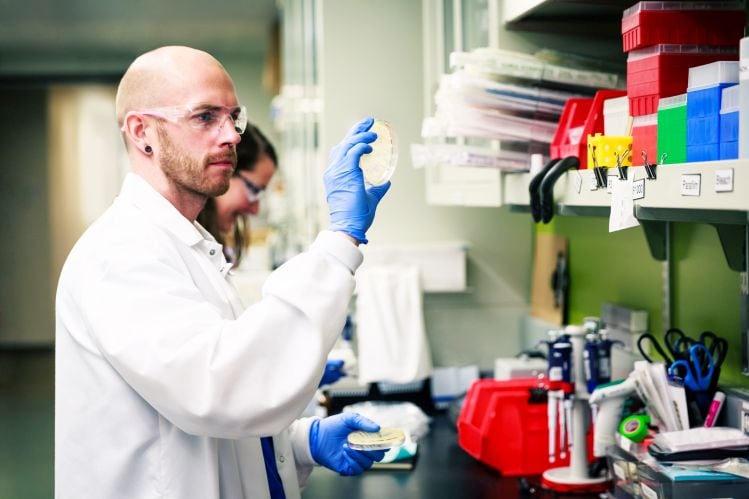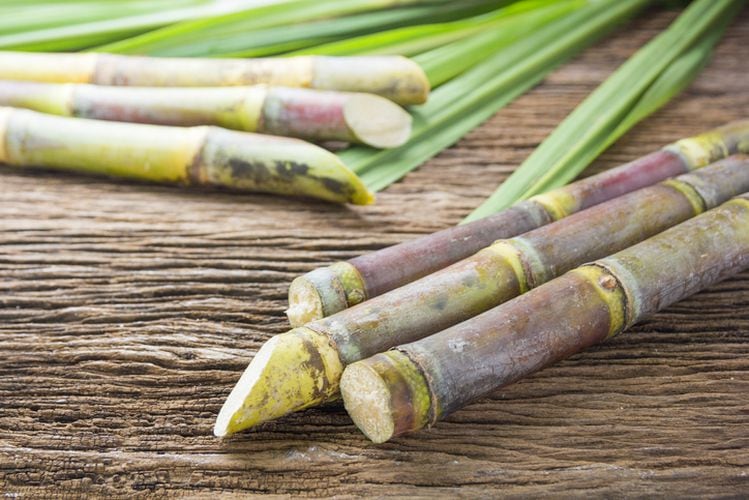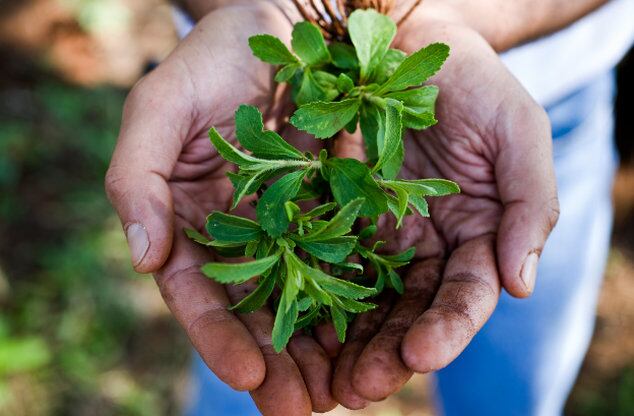While Reb M – which is found in tiny quantities in the stevia leaf - can be extracted from the plant, it is more efficient and sustainable to produce the same molecule via a fermentation process with sugar, claims the company.
Amyris has studied how the stevia plant creates Reb M and reverse engineered the process in order to reproduce the molecule using a different production platform that is more efficient than using large amounts of land to grow whole plants just so you can extract the parts of them the market is interested in, Joel Cherry, president, R&D, told FoodNavigator-USA.
“We program yeast so that it can convert Non GMO cane sugar into Reb M, one of about 100 sweet molecules in the stevia plant. We take the same genes that make enzymes in plants to do this conversion, we’re just much more selective, so we put those into our yeast strain, and the yeast is the catalyst, it performs chemistry on the sugar cane syrup and we end up with Reb M.”
While the yeast is genetically engineered, there is no yeast in the final product, as it serves as a catalyst to convert sugar into Reb M, he said. “We really think this [kind of production process] has potential for producing ingredients that are out of reach for the average consumer.”
On a quality basis, it’s a superior product. It simply tastes better
Asked how this compared to what Cargill (with Evolva) and DSM are doing with Eversweet (they too are producing Reb M via a fermentation process using an engineered yeast strain), he said: “The difference is in the purity of the molecule we produce, our yeast strain is more efficient at producing this single Reb M molecule that’s so sought-after by all the big food and beverage companies.
“So we’re hoping to win both on cost and on quality, in terms of purity and flavor profile. The feedback has been incredibly enthusiastic, we’ve been told it’s the best zero calorie sweetener they’ve ever tasted.
“It’s got a sweetness profile that peaks immediately when you taste it; it peaks about 10% sweeter than the closest competitor on a weight basis.

“And unlike all the other high intensity sweeteners we’ve tasted, that bitterness, that licorice overtone (often associated with stevia sweeteners) just isn’t there. On a quality basis, it’s a superior product. It simply tastes better, and we’re competitive on cost.”
Generally Recognized as Safe
He added: “We’ve been working on this sweetener for three years, but over the past year or so we’ve made really surprisingly dramatic improvements in the cost of production. And it’s made from sugar cane, one of the most sustainable non-GMO crops and can be used as a source.”
The sweetener has been determined GRAS (Generally Recognized as Safe) by an independent expert panel, but Amyris has also notified the FDA of its determination (and is waiting to hear back), to provide added reassurance to customers, said Cherry.
Labeling and branding
It would be up to customers to decide how to label it on the ingredients list, said Cherry, although the likely options would be steviol glycoside/Reb M/Rebaudioside M.
As for branding, said Beth Bannerman, SVP corporate communications, the sweetener is simply Reb M for the time being, but she added: “Right now it’s an ingredient for our partners to use in their products but we think down the road there is an opportunity for us to launch a consumer product, but we’re not there yet.”
But would consumers – and plaintiff’s attorneys in California, who have targeted the high intensity sweeteners segment in the past – consider Reb M produced via a genetically engineered yeast to be ‘natural,’ even though it is identical to the molecule found in the stevia leaf?
Bannerman added: “Our molecule is naturally sourced and comes from nature.”
Supply and distribution agreement with ASR Group
The sweetener, which will be officially launched this evening at a media event in New York, is produced in Brazil next to a sugar cane processing plant said Cherry, who said Amyris had recently struck a deal with ASR (American Sugar Refining) Group, the world’s largest cane sugar refiner and one of the world’s leading marketers of sugar and sweeteners.
A long-term agreement by the pair for up to 80% of Amyris’s ingredient production guarantees ASR Group a supply of the M, which is already in its second production run, said Cherry.
“ASR has a presence in a variety of markets and is one of the largest tabletop sweetener companies with brands such as Domino and C&H, so we were exceedingly pleased to see they were so interested in doing a deal.”
Our goal is to win about 30% of the current stevia market by 2022
Bannerman added: “We’re working in close partnership with ASR that has incredibly powerful relationships with beverage, snacks and confections companies, as well as a 35% share of the tabletop sweeteners market. We’ve also been receiving interest from potential customers worldwide.
“We’re not as well-known as some of these other big companies, and so John Melo, our CEO, has publicly offered to agree to a locked in fixed low price for three years for any new customer that is ordering at least 10 tons. That’s our invitation for customers to give us some consideration, because we’re so confident that when customers do their own tasting and testing and sampling, they will want to do business with us.”
Asked about the size of the prize, Cherry said: “Our goal is to win about 30% of the current stevia market by 2022.”
PARTNERSHIPS: In an announcement issued on Friday, Amyris said it was working with flavors and fragrances giant Givaudan to produce a tabletop sweetener containing its new Reb M.
A spokesperson could not provide many details at this stage as the product is still a prototype, but said: "The tabletop sweetener product includes the Amyris sweetener, natural flavors, and other ingredients in prototype that are currently being tested in consumer focus groups."
She added: "Givaudan worked with the new sweetener from Amyris to jointly develop the table-top product. Givaudan has a vast range of natural flavor tools and formulation expertise that were drawn from to help create this great tasting product."
Amyris has also announced a partnership with Camil Alimentos, one of the largest food companies in Latin America.



